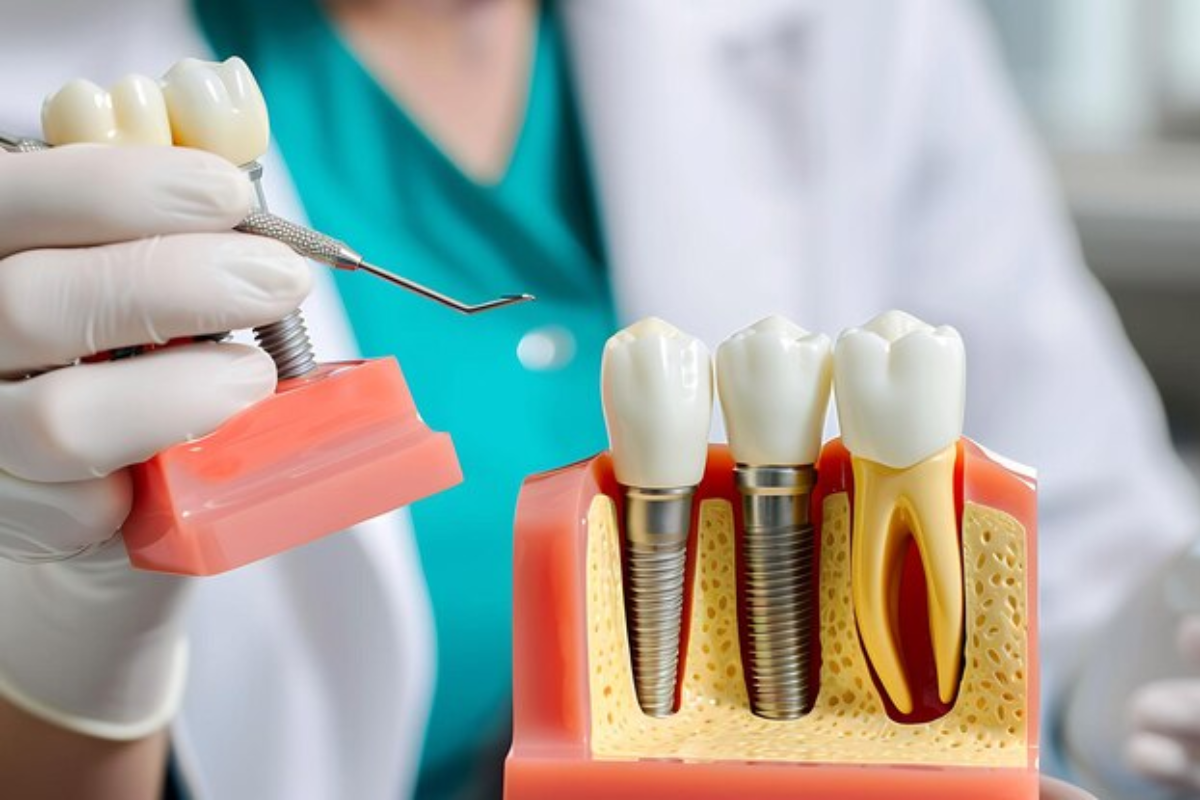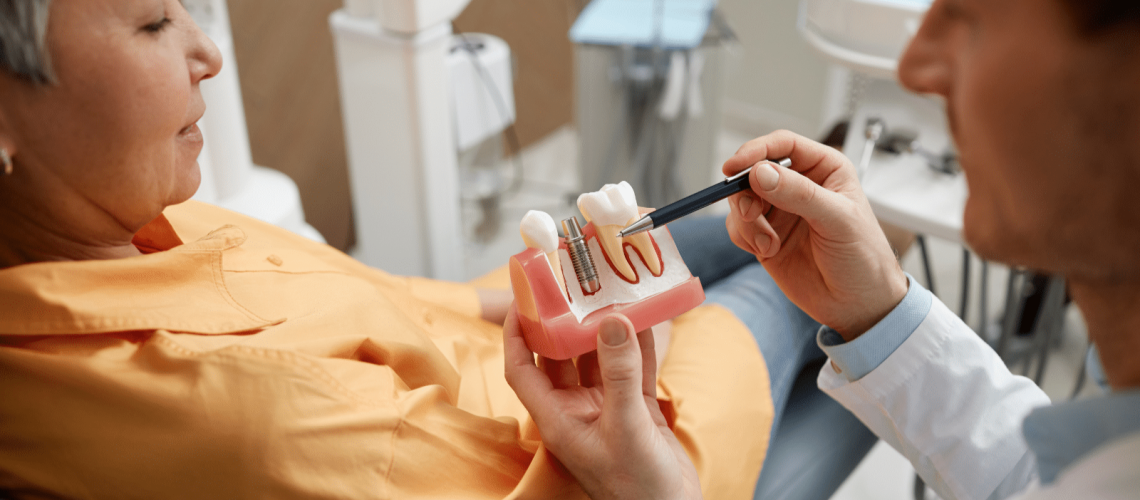Dental implants are a transformative solution for those missing one or more teeth, offering a durable and natural-looking replacement. While the procedure is relatively straightforward, proper recovery is crucial to ensure the long-term success of the implant. One key aspect of this recovery is understanding how many days you should rest after getting a dental implant. This comprehensive guide will delve into the importance of rest, factors influencing recovery time, and tips to ensure a smooth healing process.
Understanding the Dental Implant Procedure

Dental implants offer a long-lasting solution for missing teeth by mimicking the function and appearance of natural teeth. The process begins with the surgical placement of a titanium post into the jawbone. This post serves as a new root for the replacement tooth. After the implant is placed, a healing period called osseointegration begins, where the implant fuses with the jawbone. This process can take several months, during which the implant becomes securely anchored. Once osseointegration is complete, an abutment is attached to the implant. The abutment acts as a connector between the implant and the final restoration. Finally, a custom-made crown is placed on the abutment to complete the restoration, providing a functional and aesthetically pleasing result. Throughout the procedure, proper care and regular follow-up visits are essential to ensure the success and longevity of the dental implant.
The Importance of Rest After Dental Implant Surgery
Rest is a vital part of the recovery process following dental implant surgery. Here’s why:
- Promotes Healing: Rest allows your body to focus its energy on healing the surgical site and integrating the implant with the jawbone.
- Reduces Swelling and Discomfort: Proper rest helps minimize post-operative swelling and discomfort.
- Prevents Complications: Adequate rest reduces the risk of complications by preventing activities that could disrupt the healing process.
Recommended Rest Period
The general recommendation for resting after a dental implant procedure is to take it easy for about 3 to 7 days. However, the exact duration can vary based on individual factors and the complexity of the procedure. Here’s a breakdown of what you can expect during different phases of your recovery:
First 24 Hours
- Immediate Rest: For the first 24 hours, it’s crucial to rest and avoid any strenuous activities. Keeping your head elevated can help reduce swelling.
- Ice Packs: Apply ice packs to your face for 15-20 minute intervals to control swelling and discomfort.
- Medication: Take prescribed pain relievers and antibiotics as directed to manage pain and prevent infection.
First Week
- Limited Activity: During the first week, avoid heavy lifting, intense physical activities, and any activities that could put stress on the implant site.
- Diet: Stick to a soft diet to avoid disturbing the implant area. Foods like yogurt, mashed potatoes, and soups are ideal.
- Follow-Up: Attend follow-up appointments to ensure that your healing process is on track and to address any concerns.
Weeks 2 to 4
- Gradual Resumption: You can gradually return to your normal activities, but continue to avoid high-impact exercises and activities that might strain your jaw.
- Monitor Healing: Keep an eye on the implant site and any changes in your symptoms. Notify your dentist if you experience unusual pain, swelling, or other issues.
Factors Influencing Recovery Time
Several factors can influence how long you need to rest and recover after a dental implant:
1. Complexity of the Procedure
The complexity of your dental implant procedure can affect recovery time. Simple single-tooth implants generally require less recovery time compared to more complex procedures such as full-mouth implants or sinus lifts.
2. Overall Health
Your general health and healing ability play a significant role in recovery. Conditions such as diabetes, smoking, or certain medications can impact your body’s ability to heal.
3. Bone Quality and Quantity
The quality and quantity of your jawbone also affect recovery. Patients with sufficient bone density and volume typically heal more quickly than those requiring bone grafts.
4. Post-Operative Care
Following your dentist’s post-operative care instructions is crucial. Proper care minimizes the risk of complications and supports faster healing.
Signs of Complications
While rest is important, it’s also essential to monitor for signs of complications. If you experience any of the following, contact your dentist promptly:
- Severe Pain: Persistent or worsening pain beyond the expected discomfort might indicate a problem.
- Excessive Swelling: Significant swelling that does not improve or worsens could be a sign of infection or other issues.
- Fever: A fever following the procedure may signal an infection.
- Unusual Discharge: Any unusual discharge or pus from the implant site should be evaluated by your dentist.
Tips for a Smooth Recovery
To ensure a smooth recovery after your dental implant procedure, consider these tips:
1. Follow Post-Operative Instructions
Adhere to the specific care instructions provided by your dentist. This includes guidelines for oral hygiene, medication use, and dietary restrictions.
2. Maintain Good Oral Hygiene
Keep your mouth clean to prevent infection. Gently brush your teeth and use an antibacterial mouthwash as recommended by your dentist.
3. Avoid Smoking and Alcohol
Smoking and alcohol can interfere with the healing process and increase the risk of complications. Avoid these substances during your recovery.
4. Stay Hydrated and Eat Nutritious Foods
Drink plenty of water and consume a balanced diet to support overall health and healing. Foods rich in vitamins and minerals can aid in recovery.
5. Rest and Relax
Allow yourself time to rest and relax. Avoid overexerting yourself and listen to your body’s needs.
Long-Term Care and Maintenance
After the initial recovery period, continue to care for your dental implant to ensure its longevity:
- Regular Dental Check-Ups: Schedule regular check-ups to monitor the health of your implant and surrounding tissues.
- Proper Oral Hygiene: Maintain good oral hygiene practices, including brushing and flossing, to prevent issues such as gum disease.
- Avoid Hard Foods: Be cautious with hard or sticky foods that may stress the implant.
Resting after a dental implant procedure is essential for a successful recovery. While a general guideline suggests resting for 3 to 7 days, individual recovery times may vary based on factors such as the complexity of the procedure, overall health, and adherence to post-operative care. By following your dentist’s instructions, monitoring for complications, and practicing good oral hygiene, you can support a smooth and effective recovery. If you have any concerns or experience unusual symptoms, don’t hesitate to contact your dentist for guidance.
Investing time in proper rest and care will help you achieve the best possible outcome from your dental implant procedure, allowing you to enjoy the benefits of a restored smile for years to come.

